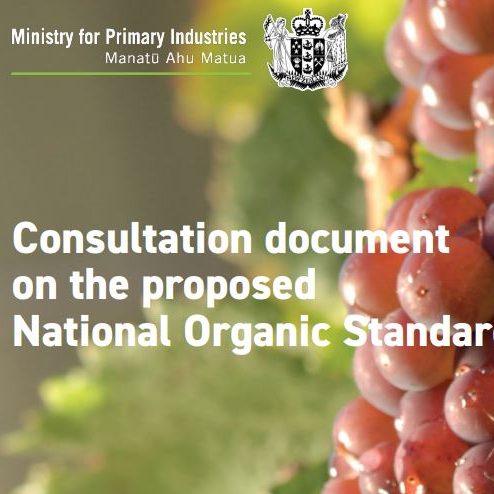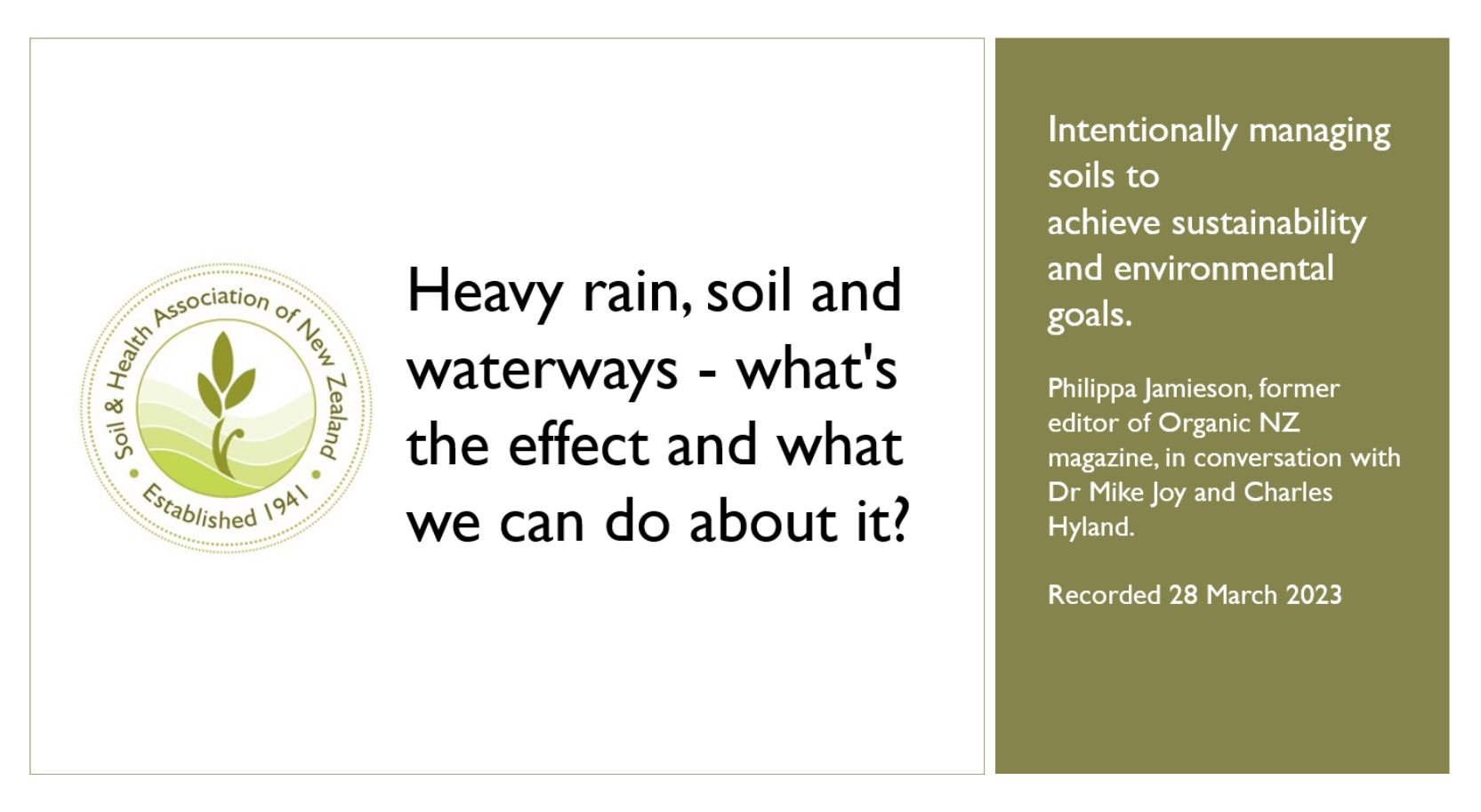Soil & Health submission on GE purple tomatoes in food
/in Campaigns, Health and Food, Submissions10 September 2025
To Food Standards Australia New Zealand

Submission to Food Standards Australia New Zealand
A1333 – Food derived from purple tomato lines containing event Del/Ros1-N
Preamble
The Soil & Health Association of New Zealand is an incorporated society founded in 1941. Its primary purpose is to promote and advocate the production and consumption of organic food. Our motto is ‘Healthy soil – healthy food – healthy people: Oranga nuku – oranga kai – oranga tāngata’.
We represent approximately 17,000 members and supporters around Aotearoa New Zealand, including consumers, home gardeners, farmers, horticulturists, business people, chefs and more.
Our members and supporters are health conscious and highly concerned about their food: how it’s produced, what’s in it, and what effects it has. They want food that is natural and unadulterated, free from harmful chemicals and toxins, and produced in ways that enhance our soils, environments, health and communities.
We represent people who have many reasons for wanting to avoid GE food – such as health, environmental, ethical, cultural, philosophical, climate change and more.
The Soil & Health Association (hereafter Soil & Health) welcomes the opportunity to submit on this application.
Submission
- Soil & Health categorically opposes the application for the Purple Tomato for the following reasons.
No justification
- Norfolk Healthy Produce’s justification for their application is that the genetically engineered Purple Tomato contains high levels of anthocyanins, which are beneficial compounds.
- However, simply containing high levels of anthocyanins is no justification for allowing this genetically engineered tomato into the food supply of New Zealand and Australia.
- This application is for an unnecessary food and is primarily for the purpose of patenting.
- There are already numerous plant foods that contain anthocyanins, such as blueberries, blackcurrants, blackberries, elderberries, cherries, purple grapes, eggplants, purple cabbage, purple cauliflower, purple carrots, blue corn, red onions, oranges, raspberries, red wine, pink grapefruit, red radishes, purple asparagus, black beans, red broad beans, and many more.
- There are already several heirloom varieties of tomato with blue and purple hues that contain anthocyanins.
- The applicant’s claim (as part of its justification for the application) that the Purple Tomato is visually striking and ‘delights consumers’ is subjective and a flimsy justification for the application.
Human health effects are unknown
- A pilot study on mice was conducted in 2008 and showed and found some benefits of consuming the Purple Tomato in terms of longer life span (Butelli et al, 2008 – referred to in the application).
- However this was a limited, small-scale study on just 20 mice, and further tests of a more extensive scope are required to provide evidence of beneficial and/or adverse health effects.
- The health effects (positive and negative) of humans consuming these tomatoes are unknown. To our knowledge there have been no trials involving humans.
- As the UK’s National Health Service said: ‘until the tomato is tested in humans we cannot be sure that it will offer the same benefits, or that there will not be any unexpected harms’.
Potential adverse health effects
- Soil & Health notes that while anthocyanins are generally beneficial for health, they are not essential nutrients.
- When anthocyanins are taken in pill form, safe levels may be exceeded, and they may have adverse health effects including the potential to limit iron absorption.
- The levels of anthocyanins in the Purple Tomato are much higher than occur in other foods and in supplement form, but there is limited research on the overconsumption of anthocyanins except when taken as supplements.
- Before approving the introduction of the Purple Tomato to our diet, independent research must first be undertaken into the health effects of consuming it, to investigate any potential adverse effects.
- We don’t know the safe upper limits of anthocyanin consumption. A Harvard University mini review states there is a ‘need for increased regulation and guidelines for polyphenol consumption and supplementation in order to ensure consumers remain safe and informed about polyphenols.’ (Anthocyanins are polyphenols.)
- One of the risks of genetically engineering foods is that allergens, toxins and novel proteins can be created.
- The applicant says the Purple Tomato does not contain anything matching or similar to any known allergens or toxins. However this does not rule out containing allergens or toxins yet unknown.
- Absence of evidence is not evidence of absence. If you’re not looking for something, you won’t find it.
Safety and equivalence
- The claim that foods produced using GE are equivalent to their non-GE counterparts cannot be made with any certainty – in fact significant differences have been discovered.
- Existing non-GE tomatoes have a history of safe use over hundreds and thousands of years. The Purple Tomato does not have a history of safe use.
- There is no long-term independent research on the Purple Tomato.
- The Purple Tomato contains genetic material from not only the purple snapdragon but also bacterial and viral material.
- We are increasingly discovering unexpected (‘off-target’) changes resulting from genetic engineering. For example, gene-edited cattle were found to have unintended alterations to the DNA, with bacterial DNA conferring antibiotic resistance, despite the developer having claimed the cattle contained no additional genetic material.
- If these tomatoes were released into the food supply, any adverse effects on humans would be unable to be measured or monitored.
- Therefore FSANZ must apply the precautionary principle and reject this application, to fulfill its regulatory function of upholding and safeguarding public health.
Māori concerns, and Te Tiriti o Waitangi
- Many Māori – including Māori members and supporters of Soil & Health – strongly object to any form of genetic engineering, as it disturbs whakapapa (kinship with the natural world), mana (dignity), mauri (life force or essence), wairua (spirit) and tino rangatiratanga (sovereignty).
- In Aotearoa New Zealand there is at least one claim before the Waitangi Tribunal that involves genetic engineering – Claim WAI262.
- Until or unless this is settled to the satisfaction of Māori, no genetically engineered organisms or foods should be approved in Aotearoa New Zealand.
Consumer rejection
- The applicant’s claim that consumers would seek out this novel food is speculative and no evidence is given to back it up.
- Many surveys in many countries have shown consumers to be wary about, if not opposed to, consuming genetically engineered foods.
- Soil & Health members and supporters have been giving us feedback that they would be horrified to see the Purple Tomato on sale in Aotearoa New Zealand, and would actively seek to avoid buying or consuming it.
- While it may not be too difficult for consumers to avoid buying the Purple Tomato as fresh produce, it may be harder to avoid it if it’s included as an ingredient.
- New Zealand’s GE labelling laws are already inadequate for consumers to make informed choices about avoiding GE food ingredients.
- For example, GE ingredients do not have to be labelled in restaurants and other food service outlets, so if the Purple Tomato is served fresh or as an ingredient in a processed product or meal it would not need to be labelled, making it harder for consumers to try to avoid.
Trade impacts
- The application says there would be no trade impacts to Australia, with no mention of New Zealand.
- While we are aware application A1333 is about food derived from the Purple Tomato, clearly those tomatoes have to be grown somewhere, and we note that an application has been filed with the Office of the Gene Technology Regulator to grow the Purple Tomato in Australia.
- The only country New Zealand currently imports fresh tomatoes from is Australia. Based on the many consumer surveys over the years, we anticipate low consumer demand in New Zealand for any Australian-grown Purple Tomatoes.
- New Zealand exports about 902 tonnes of tomatoes annually (2023 figures), mainly to Asia, the Pacific and Pacific Rim countries.
- If in future they are grown in Aotearoa New Zealand for export that could negatively affect our clean green export brand and image in international markets.
Summary
- In summary, Soil & Health strongly rejects the application.
- Accepting this application would mean exposing the public of New Zealand and Australia to potential risks that would not be able to be measured and monitored.
- We support FSANZ to take a precautionary approach to the Purple Tomato and indeed all GE foods, in order to uphold public health and safety.
- We urge FSANZ to reject this application as there is insufficient evidence of the safety of the Purple Tomato.
Soil & Health submission on the proposal to increase glyphosate maximum residue levels
/in Campaigns, Health and Food, Submissions16 May 2025
To New Zealand Food Safety

Submission to New Zealand Food Safety on Proposed Amendments to Glyphosate Maximum Residue Levels (MRLs)
Introduction
The Soil & Health Association of New Zealand unequivocally opposes the proposed amendments to the Food Notice: Maximum Residue Levels for Agricultural Compounds, which would significantly raise allowable glyphosate residues in staple crops. Specifically, the proposed increases from the current default MRL of 0.1 mg/kg to:
- 10 mg/kg in wheat, barley, and oat grain
- 6 mg/kg in dried field peas
These changes contradict the principles of precautionary public health protection, environmental stewardship, and sustainable agriculture that underpin New Zealand’s food system. They also pose substantial risks to our international trade relationships and the integrity of our agricultural exports.
Public Health Concerns
Glyphosate has been classified by the International Agency for Research on Cancer (IARC) as “probably carcinogenic to humans” (Group 2A). This classification is based on evidence linking glyphosate exposure to non-Hodgkin lymphoma and other cancers. While some regulatory bodies have disputed this classification, the IARC’s assessment is grounded in peer-reviewed studies and reflects a precautionary approach to public health.
Increasing the allowable MRLs for glyphosate could lead to higher dietary exposure among consumers, including vulnerable populations such as children and pregnant women. The long-term health effects of chronic low-level exposure to glyphosate are not fully understood, and raising MRLs without comprehensive risk assessments undermines public confidence in food safety.
Recent biomonitoring studies have found glyphosate residues in human urine in multiple countries, indicating widespread population exposure. A 2022 CDC report in the United States found detectable levels of glyphosate in 80% of urine samples tested, including from children. While these findings do not directly demonstrate harm, they highlight the need for stricter—not more lenient—residue controls to protect population health.
Emerging research also raises concerns about glyphosate’s potential endocrine-disrupting effects and its role in gut microbiome disruption, which are not accounted for in current MRL risk models.
Environmental and Soil Health Impacts
Glyphosate’s widespread use has been associated with adverse effects on soil health and biodiversity. Studies have shown that glyphosate can disrupt soil microbial communities, reduce earthworm populations, and negatively impact soil fertility. These effects compromise the resilience of agricultural ecosystems and can lead to increased reliance on chemical inputs.
A 2021 meta-analysis published in Science of the Total Environment found that glyphosate significantly alters soil microbial diversity, reducing populations of beneficial fungi and bacteria essential for nutrient cycling and plant resilience. This undermines long-term soil fertility and increases the need for synthetic inputs—counterproductive to climate and sustainability goals.
Furthermore, glyphosate’s degradation product, AMPA, is more persistent in the environment and has been shown to accumulate in both aquatic and terrestrial ecosystems. The New Zealand Pesticide Residues Committee has documented increasing AMPA detections in soil and water over the past decade, with insufficient understanding of its long-term ecotoxicity.
Trade and Market Access Risks
New Zealand’s reputation for producing clean, green, and safe food is a cornerstone of our export economy. Raising glyphosate MRLs could jeopardize access to key international markets that have stricter residue limits. For example, Japan has rejected New Zealand honey shipments due to glyphosate residues exceeding their permissible levels.
As of 2024, more than a dozen EU countries—including Austria, France, Germany, and Luxembourg—have announced partial or full bans on glyphosate use. The European Commission has approved glyphosate for only a temporary 10-year extension, amid growing pressure for a full phase-out. This creates a volatile regulatory climate in Europe where elevated MRLs could soon be interpreted as non-compliance.
In the Asia-Pacific region, Taiwan and South Korea have tightened import controls for glyphosate residues in cereals, and consumer groups in Japan have lobbied successfully for lower glyphosate thresholds in food imports. These dynamics place New Zealand exporters at risk of rejection and reputational damage if glyphosate levels are increased domestically
Policy Coherence and Future Agricultural Practices
The proposed MRL increases appear to facilitate the adoption of genetically engineered glyphosate-tolerant crops, which are associated with increased herbicide use. This shift contradicts New Zealand’s commitments to sustainable agriculture and environmental protection.
The timing of this MRL proposal, alongside the Gene Technology Bill currently before Parliament, raises concerns about alignment. Increasing glyphosate residue limits could be perceived as regulatory paving for the eventual introduction of herbicide-tolerant genetically engineered crops—an issue not openly debated with the public or iwi.
In addition, lifting MRLs for glyphosate contradicts New Zealand’s commitments under the APEC Food Security Roadmap and the Global Biodiversity Framework, both of which prioritize reductions in agrichemical inputs and the promotion of agroecological practices.
Recommendations
In light of the concerns outlined above, the Soil & Health Association of New Zealand recommends the following actions:
- Reject the proposed glyphosate MRL increases for wheat, oats, barley, and peas.
- Maintain the current default MRL of 0.1 mg/kg, adhering to the precautionary principle in food safety regulation.
- Conduct comprehensive, independent reviews of glyphosate’s health and environmental impacts, incorporating the latest scientific evidence.
- Enhance monitoring and transparency regarding glyphosate residues in food products, ensuring public access to residue data.
- Promote and support alternative weed management practices, including organic and regenerative agriculture methods that reduce reliance on chemical herbicides.
Conclusion
The proposed increase in glyphosate MRLs poses significant risks to public health, environmental sustainability, and New Zealand’s international trade relationships. Upholding our nation’s commitment to safe, sustainable, and high-quality food production requires adherence to precautionary principles and robust regulatory standards.
We urge New Zealand Food Safety to reconsider the proposed amendments and to engage in a comprehensive review process that prioritizes the health of our people, the integrity of our environment, and the resilience of our agricultural economy.
References
- IARC (International Agency for Research on Cancer). (2015). IARC Monographs Volume 112: Evaluation of Five Organophosphate Insecticides and Herbicides. Lyon, France: World Health Organization. https://www.iarc.who.int/wp-content/uploads/2018/07/MonographVolume112-1.pdf
- Centers for Disease Control and Prevention (CDC). (2022). Fourth National Report on Human Exposure to Environmental Chemicals: Updated Tables, Volume One. Glyphosate and AMPA in urine. https://www.cdc.gov/exposurereport/
- Mesnage, R., & Antoniou, M. N. (2017). Facts and fallacies in the debate on glyphosate toxicity. Frontiers in Public Health, 5, 316. https://doi.org/10.3389/fpubh.2017.00316
- Ding, J., Shen, Y., & Du, H. (2021). Effects of glyphosate on soil microbial communities and greenhouse gas emissions: A meta-analysis. Science of the Total Environment, 753, 142651.
https://doi.org/10.1016/j.scitotenv.2020.142651 - Soil Association UK. (2016). Glyphosate and Soil Health: A Summary of Research.
https://www.soilassociation.org/media/7202/glyphosate-and-soil-health.pdf - The Detox Project. (2023). Japan Warns It Will Block New Zealand Honey Shipments If Glyphosate Limits Breached.
https://detoxproject.org/japan-warns-it-will-block-new-zealand-honey-shipments-if-glyphosate-limits-breached - European Commission. (2023). Renewal Report for the Active Substance Glyphosate – Peer Review of the Risk Assessment by EFSA and ECHA. https://ec.europa.eu/food/plants/pesticides/approval-active-
substances/renewal-glyphosate_en - APEC Policy Support Unit. (2021). APEC Food Security Roadmap Towards 2030: Implementation Plan.
https://www.apec.org/docs/default-source/Publications/2021/4/APEC-Food-
Security-Roadmap-Towards-2030-Implementation-Plan.pdf - Convention on Biological Diversity (CBD). (2022). Kunming-Montreal Global Biodiversity Framework.
https://www.cbd.int/article/cop15-final-text-kunming-montreal-gbf-221222 - New Zealand Pesticide Residues Committee. (2023). Annual Report on Pesticide Residues in Food and the Environment. Ministry for Primary Industries.
Submitted by:
Charles Hyland
Chair, Soil & Health Association of New Zealand
16 May 2025
Email: charles.hyland@soilandhealth.org.nz
See also our Glyphosate Campaign Page here.
Where’s our food from? Better labelling a step forward
/in Campaigns, Food, Health and Food, Media ReleasesMedia release 29 November 2018
The blindfold will finally be lifted when it comes to buying food, but the Soil & Health Association says consumers need even greater transparency.
Soil & Health welcomes the passing into law of the Consumers’ Right to Know (Country of Origin of Food) Bill. The Bill, which requires food to carry country of origin labelling, passed with near unanimous support last night in Parliament. While footwear and clothing must be identified where they’re from, until now country of origin of food labelling has only been voluntary in New Zealand.
The Bill was a first introduced in 2016 by former MP, and now Soil & Health National Council member, Steffan Browning, as a Green Party Member’s bill.
“Transparent food labelling is fundamental in allowing people to make informed choices. Mandatory country of origin labelling is a step towards allowing consumers to do this,” says Steffan Browning.
The Bill however only applies to single ingredient foods such as fresh fruit, meat, fish and vegetables and Soil & Health says foods of multiple origins should be labelled too. This requirement could be brought in later through the setting of Fair Trading Act regulations.
“The Bill is a building block to more comprehensive food labelling requirements,” says Browning.
Soil & Health is also concerned that several single origin foods have been excluded from the Bill, including flour, oils, nuts and seeds.
“We particularly want flours and grains included, as most of the soy and maize products from the US are genetically modified. It’s absolutely necessary we have GE food labelling, but in that absence of enforcement we should at the very least be able to choose what country maize and soy products are from,” says Browning.
There has been widespread support for country of origin labelling. A survey conducted last year by Consumer NZ and Horticulture NZ found that 71% of Kiwis want mandatory country of origin labelling and 65% said they looked for country of origin labelling when they were shopping.
“There are many reasons why consumers want to know which country their food comes from. Some want to avoid GE food, food with pesticide residues, or food coming from countries with poor labour conditions or environmental and animal welfare standards,” says Browning.
Soil & Health has been campaigning for mandatory country of origin labelling for over a decade, since the government opted out of joining Australia in mandating country of origin labelling under the Food Standards Code on the grounds it would be an impediment to trade.
Genetic Engineering Webinar: What do Consumers Want? Navigating GE Issues with Jon Carapiet
/in Association Meetings and Events, Campaigns, VideoOn 5th March 2024, the Soil & Health Association of NZ held an online webinar with Jon Carapiet, to discuss consumer issues around GE. This included the right to choose, labelling, traceability, and consumers overseas – our export markets. Scroll down to read more about the webinar and to access the full recording. If you benefited from this webinar, please consider donating to Soil & Health to support our vital work, details below.
Jon is a consumer advocate, market researcher and national spokesperson for GE Free NZ (in food and environment). For almost 20 years, Jon has spoken out about the need to moderate the powerful use of gene technology to protect New Zealand’s capacity to produce and sell non-GMO food and to protect the rights of consumers at home and overseas. As an advocate for Brand New Zealand, Jon draws on his years of experience as a senior market researcher and brand communications consultant. Jon has a Bachelor’s degree from Cambridge University and a Master’s from Auckland University, and as well as working in research, he is a keen photographer, regularly exhibiting his artwork.
Access the webinar here
The webinar can be viewed here: Jon Carapiet – 5th March 2024.
A copy of Jon’s PowerPoint presentation can be viewed here.
If you would like to view the other webinars in our GE series, please go to the GE Free Campaign page of our website.
Donate to support the vital work of Soil & Health
All webinars and events are free for all members of Soil and Health; otherwise we suggest a donation of $20. All funds go towards Soil & Health’s advocacy and campaign for a GE-free New Zealand, and are eligible for tax credits.
Make your donation by credit card: soilandhealth.org.nz/donate
Or transfer funds to our account: BNZ, account number: 02 0108 0058415 001
With the reference: GE donation
Genetic Engineering Panel Discussion: Where are we at in Aotearoa New Zealand
/in Association Meetings and Events, Campaigns, VideoOn 21 November 2023, the Soil and Health Association NZ held an online webinar for an update and discussion about GE. We had over 200 attendees and some great discussion! Scroll down to read more about the webinar and to access the full recording. If you benefited from this webinar, please consider donating to Soil & Health to support our vital work, details below.
What’s the current law, what’s in our food and fields, and what does the future hold? Join Dr. Jessica Hutchings, Papawhakaritorito Charitable Trust; Philippa Jamieson, OrganicNZ magazine; and Charles Hyland, Soil and Health Association NZ in conversation.
About the panelists:
Dr Jessica Hutchings, Papawhakaritorito Charitable Trust
Dr Jessica Hutchings (Ngāi Tahu, Ngāti Huirapa, Gujarati) is nationally and internationally recognised as a leader in Indigenous food systems and Māori food and soil sovereignty; she is a founding Trustee of the Papawhakaritorito Charitable Trust that works to uplift Māori food and soil sovereignty and Hua Parakore (Māori organics) through research, development and community practice.
Philippa Jamieson, Organic NZ Magazine
Philippa Jamieson is a writer and marketing manager of Organic NZ Magazine. Philippa is an organic advocate, gardener, editor, writer and celebrant living in Dunedin. She is chair of the Organics Aotearoa NZ GE policy group, a life member of the Soil & Health Association, and involved in her local community orchard project.
Charles Hyland, Soil & Health Association
Soil & Health National Councillor Charles Hyland is a soil scientist and biogeochemist who moved to NZ in 2013 after working as a scientist at Cornell University in the USA for over ten years. Organic agriculture and natural systems have always been central to his work and worldview.
Access the webinar here
Donate to support the vital work of Soil & Health
All webinars and events are free for all members of Soil and Health; otherwise we suggest a donation of $20. All funds go towards Soil & Health’s advocacy and campaign for a GE-free New Zealand, and are eligible for tax credits.
Make your donation by credit card: soilandhealth.org.nz/donate
Or transfer funds to our account: BNZ, account number: 02 0108 0058415 001
With the reference: GE donation
Our submission on the National Organic Standard
/in Campaigns, Submissions
Following our public webinar on Tuesday 30 May 2023, we have finalised a submission on the National Organic Standard (NOS). This standard will form the future rules that organic farmers, growers, processors and retailers will be held to.
Submissions to MPI were due on Friday 16 June 2023. Here is the latest MPI update on the proposal: https://mpi.govt.nz/…/proposals-for-the-national…/
Soil & Health’s initial take on the draft standards document:
- The organic principles section still needs a lot of work. It is important that this section is rewritten within the framework of Te Tiriti o Waitangi using the IFOAM principles of Health, Ecology, Fairness and Care to ensure international coherence. This needs to be done in partnership with iwi.
- It lacks a glossary of terms, which it needs for clarity.
- There are still gaps, inconsistencies and inaccuracies.
- More work needs to be done on it and shared with the public (especially what’s in the supplementary notices).
- We need to make a proper international comparison of our organic standard with those from our key trading partners.
- We believe that it is not equivalent to EU organic regulations in allowing container growing of perennials for their whole life cycle (e.g. container blueberry farms).
- Seed treated with prohibited chemicals should not be allowed under our organic standard.
- The shortening of livestock conversion times in this draft is concerning.
- It should be made clear that processed organic products cannot contain GMOs.
Letter to Ministers and MPs: Seizing the opportunities of organic regenerative farming
/in Campaigns, Soil4Climate, SubmissionsA remit passed at the 2022 Soil & Health AGM calling for advocacy on climate change action through organic regenerative farming.
The following letter was sent to Ministers and MPs on 18th April 2023.
To:
Hon Damian O’Connor MP, Minister for Primary Industries;
Hon James Shaw MP, Minister of Climate Change
Chris Luxon MP, Leader of the Opposition
Todd McClay MP, Opposition spokesperson for agriculture
Simon Watts MP, Opposition spokesperson for climate change
Debbie Ngarewa-Packer MP, Co-leader Te Pāti Māori
Mark Cameron MP, ACT Party agriculture spokesperson
Simon Court MP, ACT Party climate change spokesperson
Teanau Tuiono MP, Green Party agriculture spokesperson
Dear Ministers, and Members of Parliament,
Re. Seizing the Opportunities of Organic Regenerative Farming
We write to you in the aftermath of cyclone Gabrielle, as the country continues to grapple with the challenges of a changing climate and the need to reduce our emissions in line with international agreements. The Organic Products and Production Act has also now received Royal Assent. The passing of this legislation is a major opportunity for our country.
Organic regenerative farmers around New Zealand are leading the way. They are doing this by lowering their environmental footprint through organic regenerative farm practice, whilst also commanding a premium price in domestic and international markets through organic certification. We believe that greater political support for the transition to organic food and farming, while embracing regenerative practices, can deliver the best of both worlds. This means lower gross emissions and environmental impact, whilst upholding the best possible price for farm produce.
As political parties prepare for this year’s general election, we implore you to champion support for the organic regenerative transition. Trading partners such as the European Union and United States are already moving in this direction. They have clear targets and incentives from the government.
The Global Shift to Environmental Leadership Through Organics
The return on organic produce is higher than for conventional. This premium is based on consumer concern for environmentally sustainable food, and trust in organic certification which is a globally recognised and regulated system.
The EU provides funding for organic transition, with a goal to have 25% of the EU’s agricultural land area under organic management by 2030. The United States recently announced $300m for organic transition.
Organic regenerative farms across New Zealand are a largely untapped resource when it comes to climate change and the environment. It is time to create a more open and meaningful exchange of knowledge between the organic and conventional sectors for the benefit of the environment and society. This work requires leadership and resourcing from all sides, including politicians and the government.
Lowering Our Carbon Intensity
The prohibition of synthetic nitrogen fertilizer on organic farms alone makes their carbon footprint significantly different from conventional counterparts.
Between 1991 and 2019, the amount of nitrogen applied to New Zealand soil increased by 629%. When soil microbes consume nitrogen, they also consume a proportional amount of carbon, potentially emitting more GHGs. Synthetic nitrogen fertilizers also cause more nitrous oxide (a greenhouse gas 300 times more potent than CO2) to be emitted from soil.
Although nitrous oxide emissions occur on nearly all farms to some degree, organic farms in Europe were found to emit 40% less than comparable conventional farms. Techniques commonly used by organic farmers, including manure composting, have been shown in Europe to reduce emissions of nitrous oxide by 50% and methane by 70%.
Policy to Support Environmental Leadership on Farms
To advance this vital opportunity we are calling on politicians and the government to:
- Fund targeted research on organic farm management and climate emissions,
- Give incentives and support for regenerative farmers to obtain organic certification, such as bridging finance or grants to cover certification (typically over three years),
- Ensure ongoing structural funding for organic sector organisations to deliver extension and support for organic growers and businesses and conventional farmers wishing to convert to organics.
We would be happy to supply more information on any of the points raised in this letter,
Yours sincerely
Marion Wood
Chairperson, the Soil & Health Association of New Zealand
A PDF version of the letter can be accessed here.
Heavy rain, soil and waterways – what’s the effect and what we can do about it?
/in Association Meetings and Events, Campaigns, Freshwater, VideoAbout the video
We all know that heavy rains cause soil loss and runoff. And we understand these are harmful to fresh water and the wider environment.
But many farmers, gardeners and land owners are unsure about where to start fixing these problems.
Join Philippa Jamieson, former editor of Organic NZ magazine, in conversation with soil scientist Charles Hyland and freshwater ecologist Dr Mike Joy as they discuss some of the mechanics of these problems and the relative virtues of various solutions.
This webinar aims to empower the organic community to intentionally manage their soils in order to achieve their sustainability and environmental goals.
About the panelists
Charles Hyland is a soil scientist and biogeochemist who moved to NZ in 2013 after working at Cornell University in the USA as a scientist for over ten years. His career has focused on identifying complex environmental problems associated with agricultural systems and implementing effective innovative solutions. Organic agriculture has always been central to his work and worldview.
Mike Joy began lecturing at Massey University in ecology and environmental science in 2003. After seeing first-hand the decline in freshwater health in New Zealand, he became an outspoken advocate for environmental protection. He has been working for two decades at the interface of science and policy in New Zealand with a goal of strengthening connections between science, policy and real outcomes to address the multiple environmental issues facing New Zealand.







